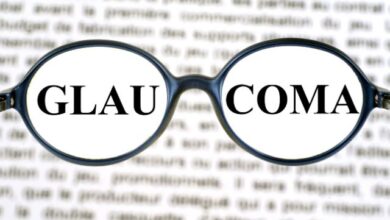Depression: Massive Depressive disorders

Depression: Have you ever felt really sad, like a heavy cloud is hanging over you and won’t go away? This feeling can be more than just a case of the blues. It might be a condition called “Major Depressive Disorder” or “Clinical Depression.” In this article, we’ll explore what this condition is, its causes, and how people can get help.
What Is Major Depressive Disorder?
Major Depressive Disorder (MDD), often called clinical depression, is a serious and common mental health condition. It’s not the same as feeling sad after a bad day. MDD can affect how you think, feel, and handle everyday activities. It’s like carrying a heavy weight on your shoulders, and it can last for weeks, months, or even years.
Symptoms of Major Depressive Disorder:
- Persistent sadness and a feeling of hopelessness.
- Loss of interest or pleasure in activities you once enjoyed.
- Changes in appetite or weight.
- Sleep problems, like sleeping too much or too little.
- Feeling tired and lacking energy.
- Trouble concentrating and making decisions.
- Feelings of guilt or worthlessness.
- Thoughts of death or suicide.
Causes of Major Depressive Disorder:
Depression is not something people bring upon themselves. It’s a complex condition with various causes, such as:
- Chemical Imbalance: Our brains use chemicals called neurotransmitters to communicate. When these chemicals are out of balance, it can lead to depression.
- Genetics: If depression runs in your family, you may be at a higher risk of developing MDD.
- Life Events: Traumatic events like the loss of a loved one, job loss, or relationship problems can trigger depression.
- Chronic Illness: Health issues like heart disease, cancer, or chronic pain can increase the risk of depression.
- Substance Abuse: Alcohol or drug abuse can contribute to or worsen depression.
Getting Help for Major Depressive Disorder:
The good news is that MDD is treatable. Here’s what you can do:
- Talk to Someone: Sharing your feelings with a trusted friend or family member can be the first step toward healing.
- Professional Help: A mental health professional, like a therapist or psychiatrist, can provide therapy and, if needed, medication.
- Medication: Some people may benefit from antidepressant medication, but it should always be prescribed and monitored by a healthcare provider.
- Lifestyle Changes: Eating well, exercising, and getting enough sleep can all help improve your mood.
- Support Groups: Joining a support group with people who are going through the same challenges can be very comforting.
FAQ
FAQ on Major Depressive Disorder (Clinical Depression)
What is Major Depressive Disorder (MDD)?
Major Depressive Disorder, also known as clinical depression, is a severe mental health condition characterized by persistent sadness, loss of interest, and other troubling symptoms.
How is MDD different from feeling sad occasionally?
MDD is more than just feeling sad after a bad day. It’s a long-lasting condition that affects how you think, feel, and function in daily life.
What are the common symptoms of MDD?
Symptoms include persistent sadness, loss of interest in activities, changes in appetite and sleep, fatigue, trouble concentrating, feelings of guilt or worthlessness, and, in some cases, thoughts of death or suicide.
What causes MDD?
MDD can result from various factors, including chemical imbalances in the brain, genetics, traumatic life events, chronic illness, and substance abuse.
Can MDD be treated?
Yes, MDD is treatable. Therapy, medication, lifestyle changes, and support from professionals and loved ones can help manage the condition.
How can I help someone with MDD?
Be a supportive listener, encourage them to seek professional help, and educate yourself about the condition. Remember that they are not alone in their struggle.
Is medication always necessary to treat MDD?
Medication may be recommended for some individuals, but it’s not always necessary. The treatment plan should be tailored to the individual’s specific needs.
Can MDD be cured completely?
MDD can often be managed effectively, and many people experience significant improvement in their symptoms. However, for some individuals, it may be a long-term condition that requires ongoing care.
Are there self-help strategies for managing MDD?
Yes, adopting a healthy lifestyle, including regular exercise, a balanced diet, and good sleep hygiene, can complement professional treatment.
Where can I find more information and support for MDD?
You can reach out to mental health professionals, local support groups, or online resources to learn more about MDD and find the help you or a loved one may need.
Can children and teenagers experience MDD?
Yes, MDD can affect people of all ages, including children and teenagers. It may manifest differently in younger individuals.
Is there hope for people with MDD to lead fulfilling lives?
Absolutely, with the right treatment and support, people with MDD can go on to lead fulfilling, happy lives. It’s important to seek help and not lose hope.
Remember that seeking help is a crucial step in managing MDD. If you or someone you know is struggling with depression, don’t hesitate to reach out to professionals and support networks for assistance and guidance.
Conclusion:
Major Depressive Disorder is a serious condition, but it can be managed and treated. If you or someone you know is struggling with depression, remember that there is help available. Don’t be afraid to seek support, because there is a path to healing, and brighter days can be just around the corner. You are not alone in this journey towards better mental health.



